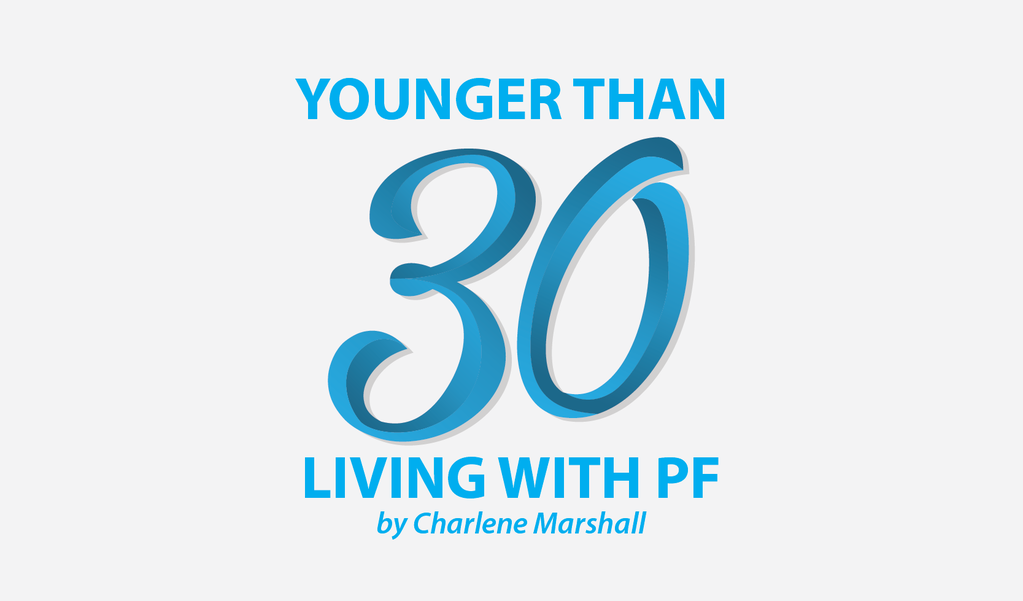The Conflicting Feelings and Fears of Traveling with IPF

For those of you who know me personally, you likely are aware that I am excited about an upcoming trip to celebrate my 30th birthday. More than the fact that it’s my birthday, I am looking forward to this trip because it not only is a vacation from work and the chaos of life right now, but also it is time away from medical appointments and procedures. Most of all, I will be spending quality time with two really important people in my life.
What you might not know is that I have some conflicting feelings, fears, and anxieties about traveling. This never previously existed for me. I loved to travel, and the farther from home the better! When I first went to Australia a few years ago, I was not nervous. Instead, I was excited about exploring a new country. I knew I would love Australia, and I knew that there was little risk of something happening to me because I was mostly healthy and ready for adventure.
What I didn’t know was that I likely already had idiopathic pulmonary fibrosis (IPF), but I was asymptomatic, meaning I had no idea that my lungs were filling with scar tissue that eventually would lead to my being unable to breathe properly. As a result of not knowing this, I did not have anxiety about this trip or fears that something might happen to me. Unfortunately, I cannot say the same about this trip.
Don’t get me wrong; my excitement for this trip trumps by far the anxieties I am feeling. But there is this little fear of “what if?” in the pit of my stomach that I cannot ignore as it draws nearer. I know many others reading this column who have IPF or other interstitial lung diseases have successfully traveled and had a wonderful time. I have, too,, including my return to Australia for the third time just last fall, where I had an amazing trip and made incredible memories with wonderful friends. That said, my lungs were in better physical condition than they are now.
Following are some of the things running through my mind that are causing anxiety about my upcoming trip:
- Accessibility: This is something I have never had to be aware of on previous trips. I could climb stairs or walk up hills, but that is no longer the case. Needing my oxygen regularly, I prefer not to do stairs due to how short of breath I get. This means that while on my trip, I will have to look for elevators everywhere, including on the subway, in bus terminals, and in and out of different venues.
- Medications: Typically traveling with a few medications is not a problem, as airport personnel expect people to have a few pill bottles with them. However, with the amount of medications I am on, I find it easiest to have them organized in one of those pillboxes for AM/PM, etc. By doing this, it means that my medication is not in the original containers. I know that I should re-organize all of my medications into their original bottles to clear customs. I’m not used to taking them this way; what if I miss a dose as a result of not having them organized like I normally do?
- Germs: At this time of year, germs are everywhere, especially on airplanes, at malls, or in crowded spaces. I know I need my Vogmask on at all times while away, and I will take additional precautions to protect myself from germs, such as frequently washing my hands. There is not much more I can do to protect myself, and I suppose the threat of becoming sick is always going to exist.
- Keeping up/not slowing others down: While the two friends I am going with know my abilities better than most, I still fear not being able to keep up and being able to do everything we want to. There is a ton to see in the city we’re going to in a short period of time, and I want to see it all!
- An emergency out of the country: I am not as worried about this because I have paid for extra insurance coverage to get me what I need if there is an emergency. Also, anyone could have an out-of-country emergency at any time, regardless of a chronic illness. Although I have been thinking about it, I try to put this at the back of my mind, knowing I have done everything I can to prevent an emergency.
Do you have any additional tips to share? Here’s hoping for a wonderful trip, celebrating a milestone birthday with lots of laughs and great memories!
***
Note: Pulmonary Fibrosis News is strictly a news and information website about the disease. It does not provide medical advice, diagnosis, or treatment. This content is not intended to be a substitute for professional medical advice, diagnosis, or treatment. Always seek the advice of your physician or other qualified health provider with any questions you may have regarding a medical condition. Never disregard professional medical advice or delay in seeking it because of something you have read on this website. The opinions expressed in this column are not those of Pulmonary Fibrosis News, or its parent company, BioNews Services, and are intended to spark discussion about issues pertaining to pulmonary fibrosis.









Comments
Gary Ford
Charlene:
Great news about your next vacation and "don't worry, be happy." My suggestion is very much "know your limits and play within it" routine, when we went on an eastern Mediterranean cruise and we faced climbing 300 stairs to look at a cathedral, I said to my wife and daughter go ahead and take lots of pictures because I wasn't about to attempt that many stairs, and it was +34 degrees...also, I didn't hesitate to request and use a wheelchair...we did Disney World and covered most of the park and went through most of the exhibits ahead of the lines... and be realistic as to what you want to accomplish each and every day...and then limit them as to what you are capable of...for example my wife and daughter wanted to do 3 events, I said I could manage 2 and encouraged them to do the 3rd, but without me...and remember you don't recover as quickly as you did before...so a "hard" day and then a "more easier" day routine helped me get through the vacation...I have never taken my original drug bottles, only my "pill pots" and have never been questioned...and besides there aren't any narcotics to worry about...that gives me an idea, now that I am post transplant I will let them smell my "skunky" pills to really appreciate what it is like! I haven't traveled since my surgery, but we are going "south" to bring in the New Year as I am looking forward to walk the beaches without lugging my oxygen equipment...
Warmest regards and all the best,
Gary
JOHN SLIWINSKI
What are 'pill pots'?
Tim van Someren
Hi Charlene.
Sounds like I'm at a similar stage to you - I need my O2 for a flight of stairs or a walk further than 100yds; less than a year ago I would have managed either obstacle without thinking. But I still travel a lot; I went from London to New York for a work trip on my own last week, and the main lesson I learnt was - Don't Be Proud.
The airline (British Airways) wouldn't allow my P.O.C. on board as they have banned the Lithium Iron battery. I had a P.O.C. rent on arrival in NY and would use the on-board Ox on the plane. But I didn't have any O2 for walking around the airport.
I thought I could just "take it steady" and I'd be fine.
The walk from the terminal to the gate can be a long way in a big airport. I really didn't want to be pushed in a wheelchair (I'm 45 and don't look "disabled") so I started the walk on my own. But I realised I couldn't really do it, and I flagged down a passing electric buggy. The driver was super kind and took me all the way to the gate. He also booked a 'chair for arrival at JFK and I was really grateful I had it.
I definitely needed that help and shouldn't have been too proud to take it!
In NY I was fine with my rented P.O.C. (and lots of Ubers - I don't know what I'd do without Uber!).
Other things?
I pack my meds into an "AM/PM" container as you describe and take it hand luggage. It's the usual cocktail of steroids, anti-fibrotics, supplements etc so it's a lot of tablets. I've flown 6 or 8 times this year and never been asked about it.
I take the labels from the original containers just in case.
At least with IPF you know how you are and how you are going to be. You can judge what you can manage and what you can't.
It's not something that really leads to sudden acute problems (I mean, you don't fall over in the street from an "attack of IPF"!). The most likely problem would be a chest infection, and that's exactly the sort of thing that hospitals the world over can deal with, and it comes on with enough warning that you can get help.
Like you say, travelling is about the experience, and getting those experiences becomes even more urgent and precious when you have something like IPF.
Safe travels!
Tim
JOHN SLIWINSKI
I am getting ready to travel next September 2018 to Ireland and a lot of questions , like others, pop up in my head. One of them is the medications and how to pack them. I do not require oxygen at this time but I am concerned about altitude especially in a plane. My MD says I will be fine since the cabin is pressurized. Other things are always the 'what ifs' as listed in the article. When you have IPF there is a lot of concern for yourself.
Anyone else have travel concerns?
Tim van Someren
Hey John.
The airplane cabin is pressurised, but only to the equivalent of the air pressure at 7,000ft (2,100m).
If you have any reduced lung function, you should take a "fit-to-fly" test (also called a Hypoxic Challenge test). Your MD can arrange it for you.
It's really easy - they get you to breathe air that is at airline cabin pressure (by breathing from a giant bag) and they measure how your oxygen saturation reacts.
I failed the test, even though I didn't need oxygen in normal day-to-day life back then.
All this meant was that I needed to ask the airline to provide me onboard oxygen, which is pretty straight forward. Virgin and BA can provide from their own bottles on board.
Other airlines require you bring a Portable Oxygen Concentrator, which you can rent.
As it's a while until you travel, and your health may change before then, you should think about arranging for a test a few months before you go and then you can have peace of mind; or have time to arrange O2 on board if you need it.
I flew 6 or 8 times last year and it was never a problem, it just means being a bit organised to arrange the forms and the oxygen each time.
Safe travels!
Tim
lesley scheerle
Does anyone know of an insurance company in Canada that will cover me for a pre-existing condition eg: IPF? Mine won't.So I am taking a chance to visit my sister in the U.S without it.
Crazy?